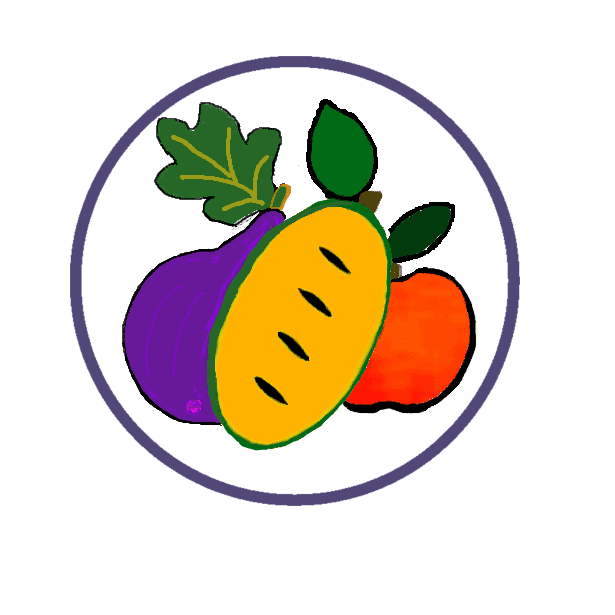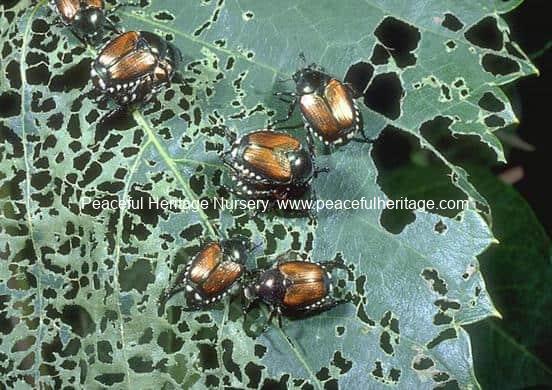I’ve gotten some questions lately about the “shiny, black-green beetles on my trees, just tearing them up!”. Yes, indeed mid June-late August is Japanese beetle season, and they are surely a pain. The reason is, they are voracious predators of many, many garden and fruit plants. They especially like roses, apple trees, plums, hazelnuts, grapes, berry plants, hardy kiwi, and will even eat on pawpaw leaves. You need to really manage them somehow because they will sometimes defoliate entire trees, causing substantial damage. Bummer. But, there are some effective ways of dealing with them, as we will explore.
1) The bucket of soapy water. This works great, but is a little more labor intensive. Fill a bucket 1/2 full of water with a couple tablespoons of strong liquid soap, any kind. Stir it up. Now, go to the infected plant and put the bucket directly BELOW an infested area. Gently tap on the leaves or twigs, and the Japanese beetles will duck and roll off it, right into the bucket. Do this on the infested plants about 2-4 times a week. it does work, but takes persistence.
2) Pyganic. This excellent, all-natural, Chrysanthemum-derived botanical insecticide, Organic-approved spray works wonders. Mix with water in your sprayer and go to town on ’em. They will immediately stop feeding, and fall off the plant dead within about 20-30 minutes. Score. Now, this has to be done about 2-3 times a week. Try to start before severe damage begins. Pyganic is available many places online, and is a little pricey, but it works great and one bottle lasts a while. Keep it indoors in a cool, dark place. It decomposes into inert material in about 3-4 hours in the sun, unlike toxic chemical pesticides that persist forever basically, and poison water supplies, harms wildlife, humans and the environment, causing cancer and all kinds of terrible effects. The one thing about Pyganic is that it will kill pollinators if sprayed on blooms, so be careful and try not to spray plants in bloom. By June most fruit plants are done blooming and there is no risk of killing pollinators with Pyganic, but exercise some caution. Pyganic also eliminates aphids, stink bugs and all kinds of pest insects.
3) Milky Spore. This all-natural, (previously) Organic-approved bacterium is in a granular form that you sprinkle all over your lawn. It then lives in the soil for many years and attacks the Japanese beetles in their underground, grub form. Takes about 2 years to take effect and will not effect grubs outside the innoculated area.
4) Traps. These work, but some people claim the lure draws more beetles to your site. I don’t use these, but you may like them.
Good luck, and do what you can to eliminate Japanese beetles in your orchard and garden!


